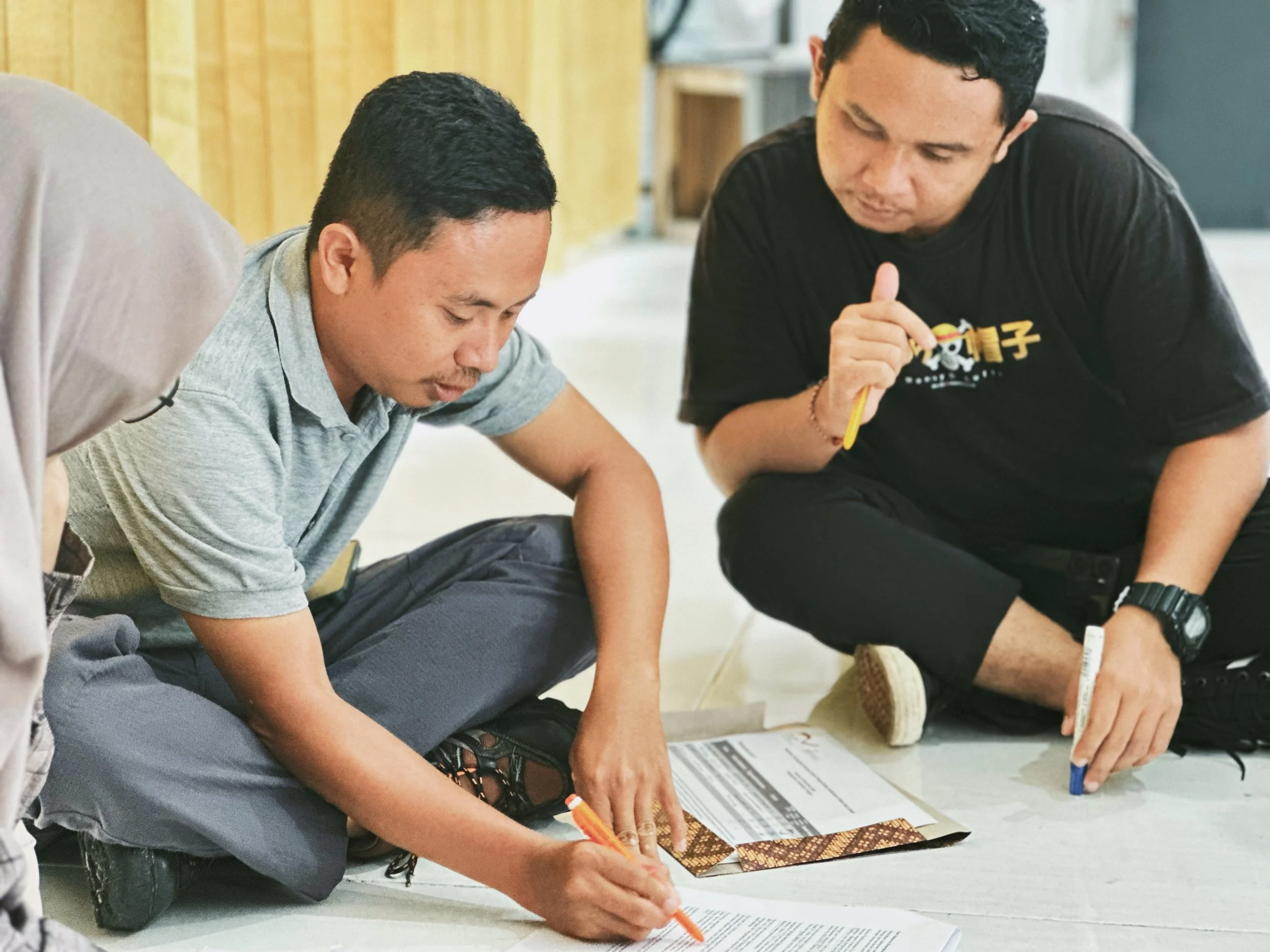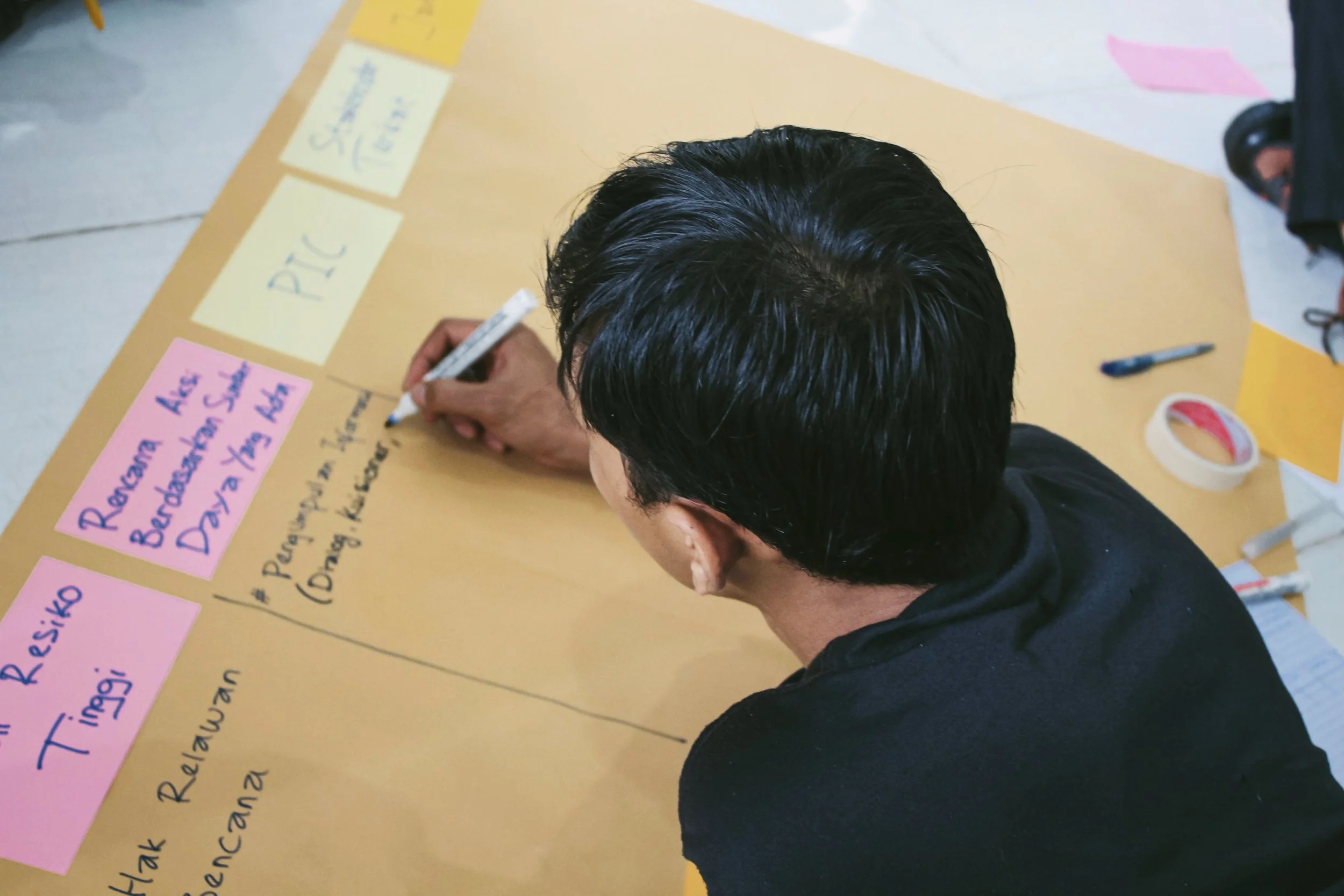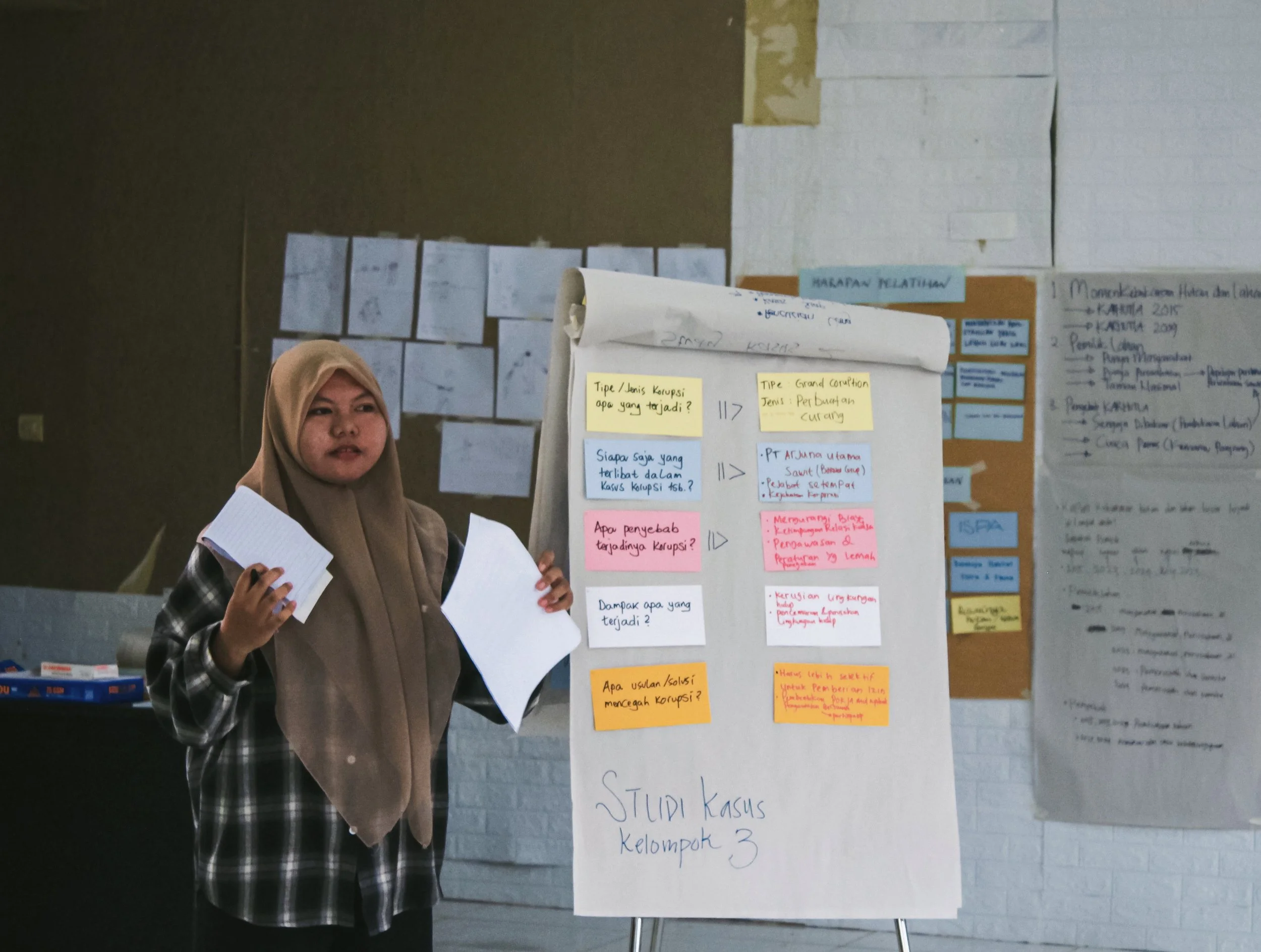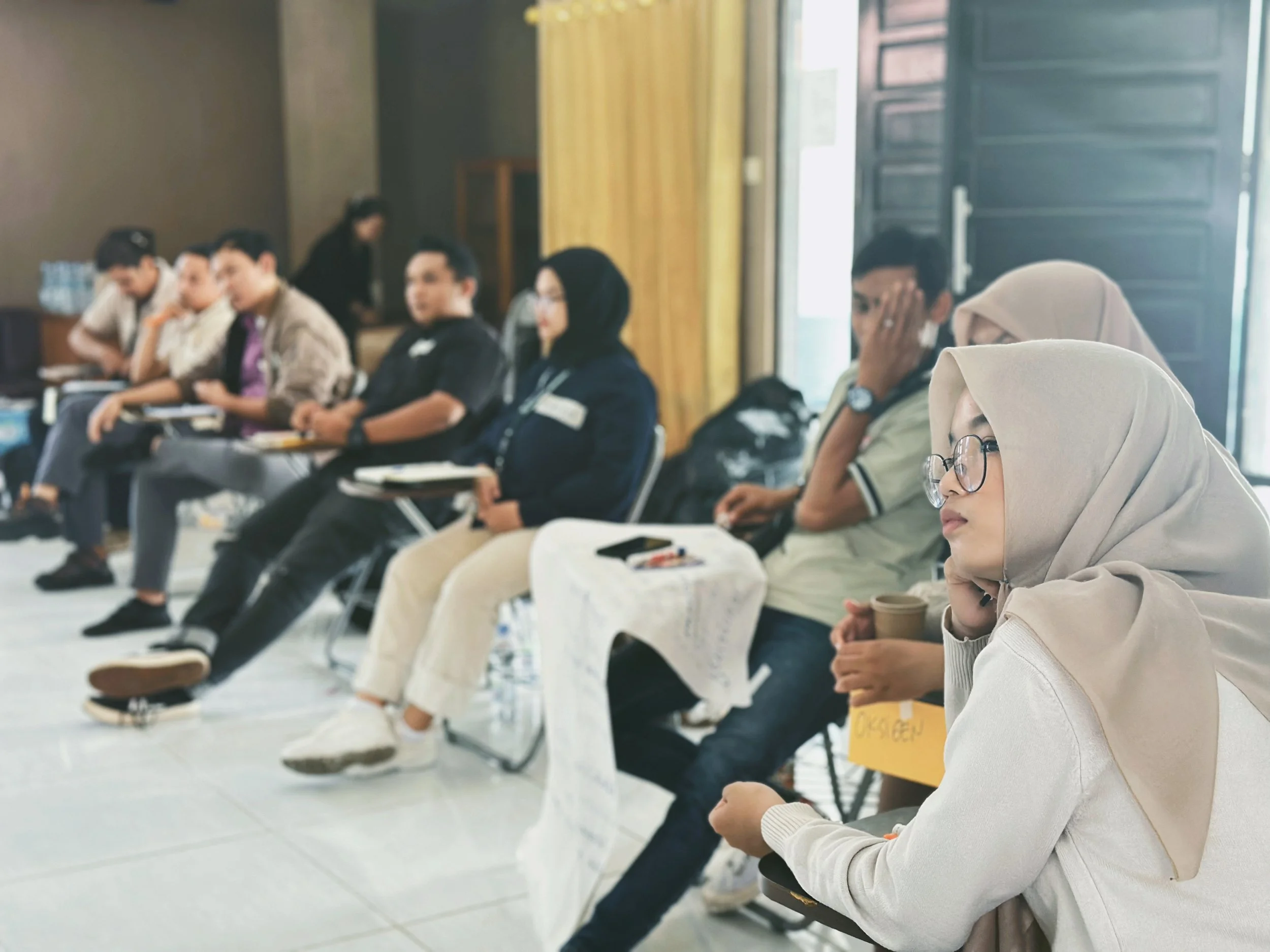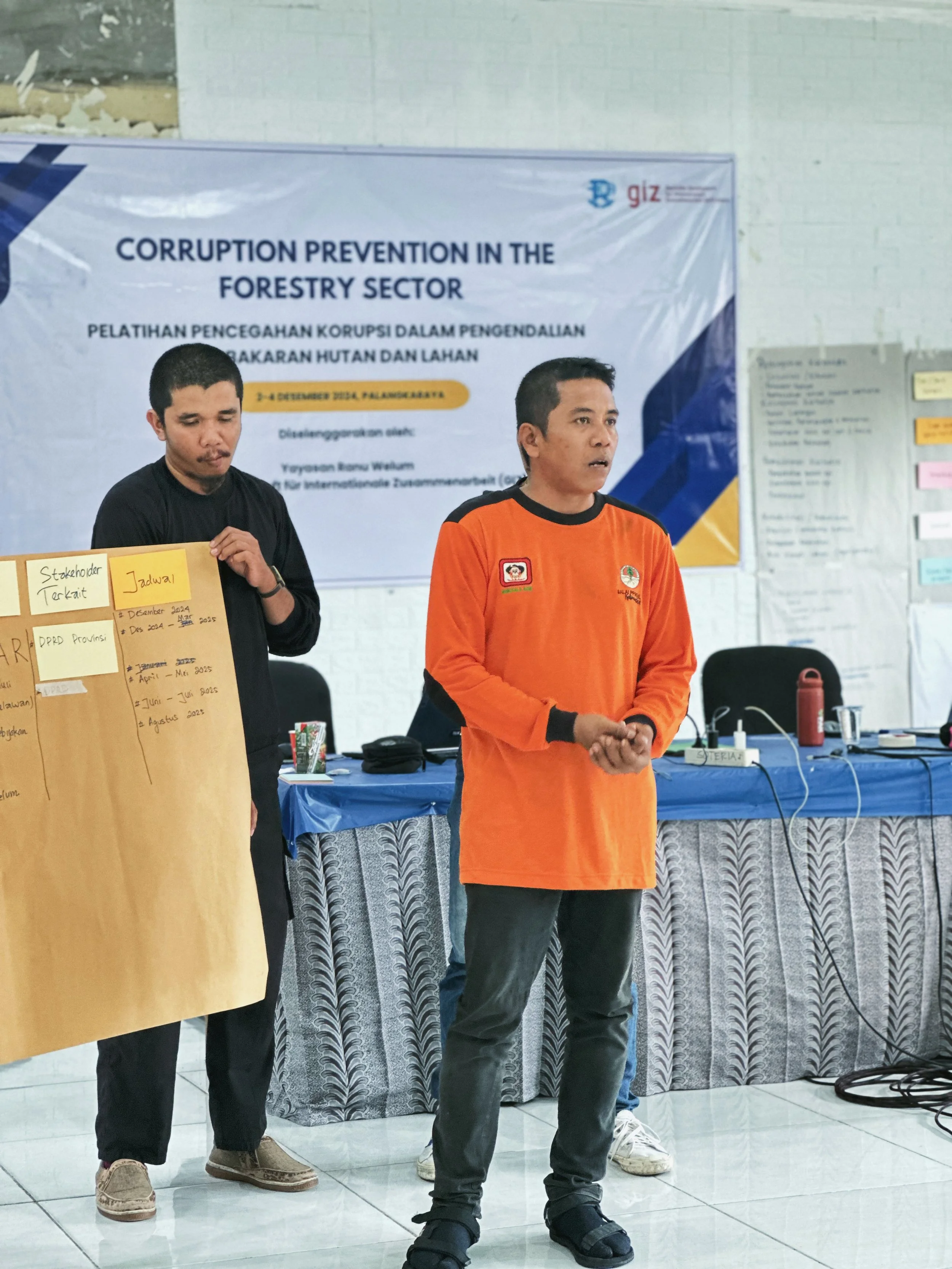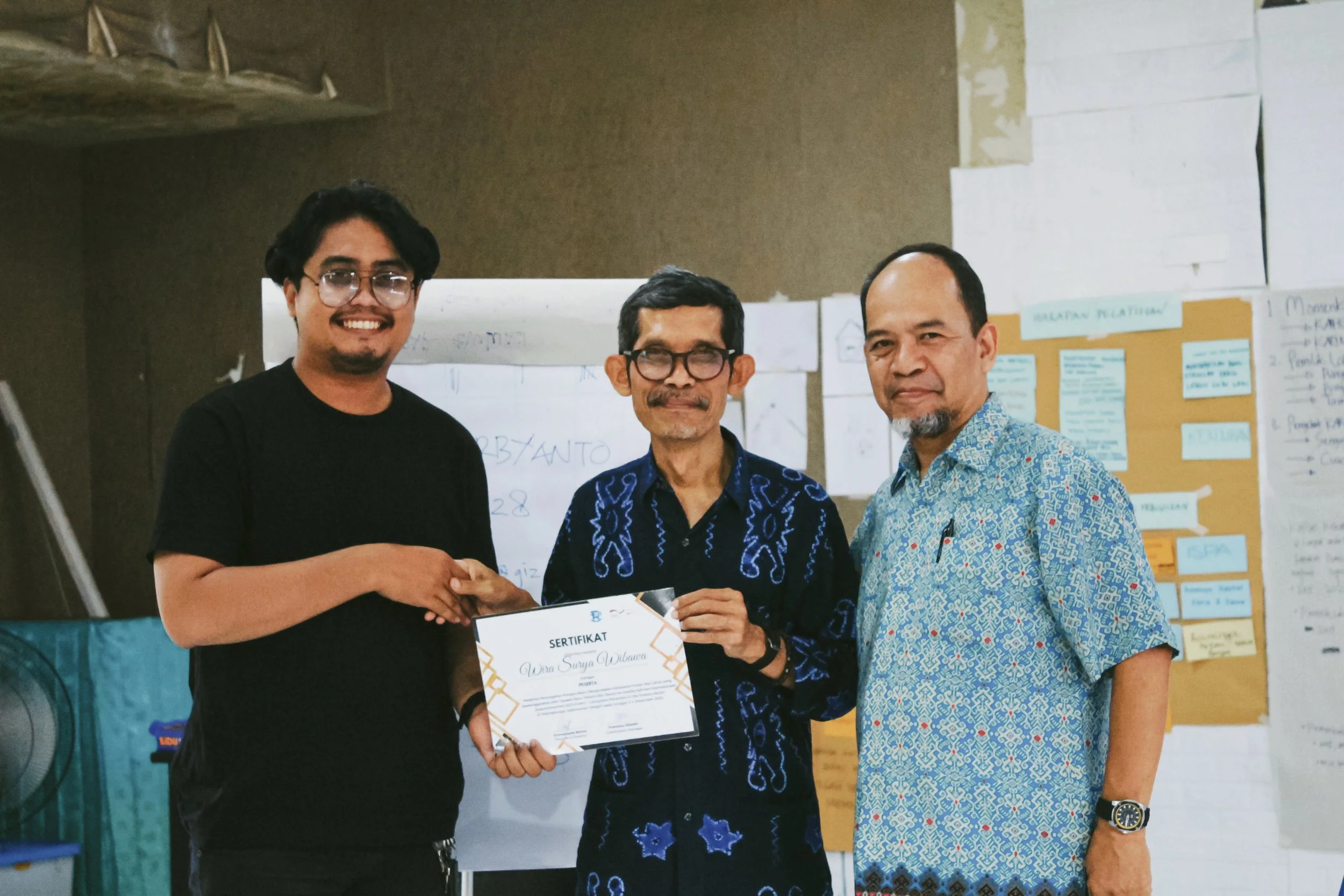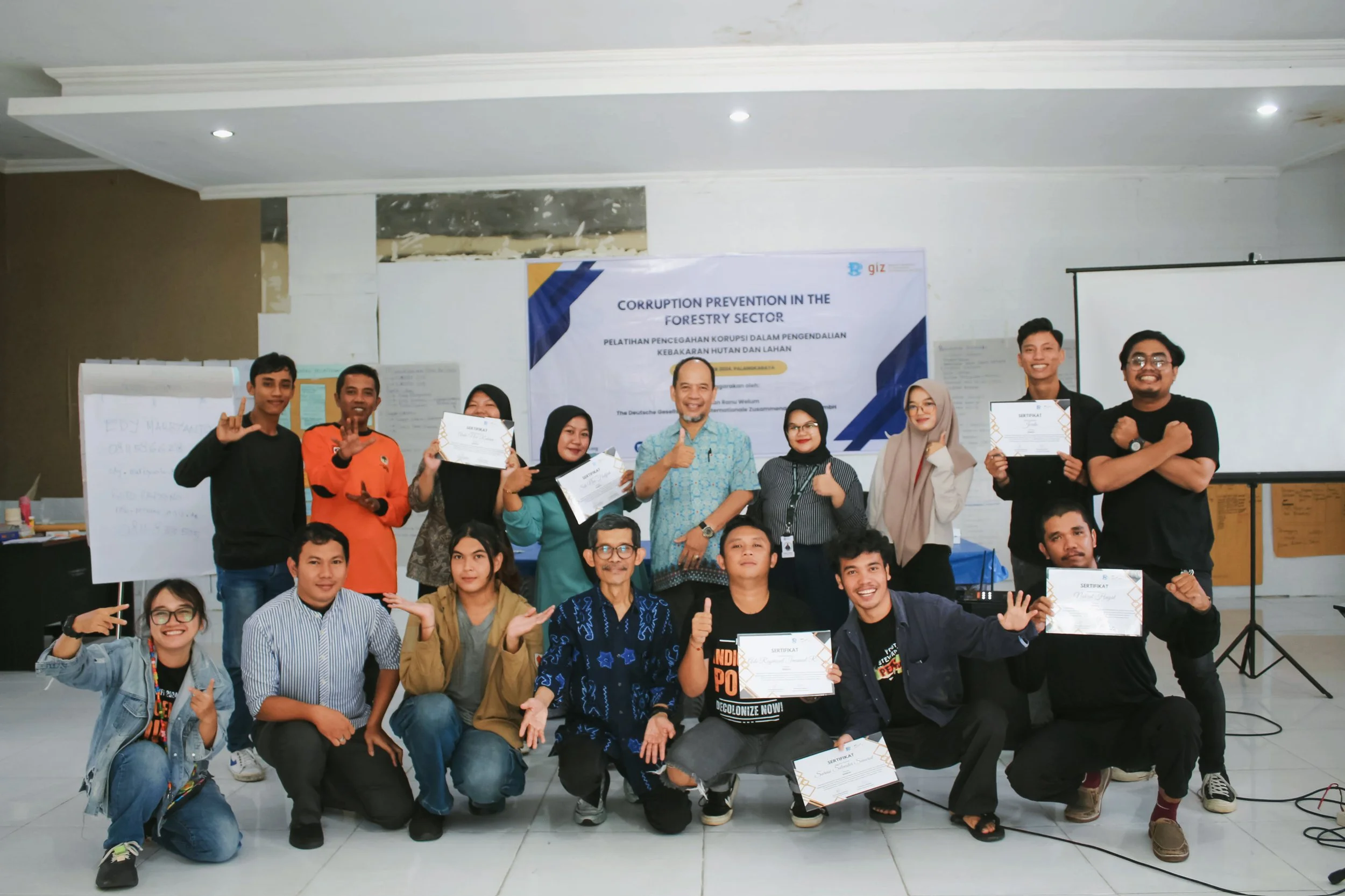From December 2 to 4, a pivotal workshop focused on corruption prevention in peat and forest fire management was held, highlighting a proactive approach to tackling systemic issues within environmental management. Organized by the Ranu Welum Foundation, with support from GIZ GmbH and in collaboration with the Anti-Corruption Commission of Indonesia under the Corruption Prevention in the Forestry Sector project, the event brought together an influential mix of 15 participants. The group included members from civil society organizations (CSOs), disaster volunteers, firefighters, activists, and environmentalists, each bringing unique perspectives and expertise. The training was facilitated by Roto Priyono and Edy Marbyanto, experts from GIZ GmbH with over 20 years experience.
Edy Marbyanto delivered the session on integrated forest fires management
Roto Priyono delivered a session on values of anti-corruption
The core objective of the workshop was to address and mitigate corruption risks that undermine effective peat and forest fire management. Such corruption often leads to uncontrolled fires, significant environmental damage, and health hazards in surrounding communities including firefighters. By fostering collaboration and dialogue among stakeholders, the workshop aimed to bolster transparency, accountability, and ethical practices within the sector.
Discussing and analyzing case study
Outlining action plan
Presenting the result of group discussion
Paying attention to the presentation of the other group
Endar and Nahrul from TSAK (local firefighters) Menteng described necessary steps to be taken for the action plan on the matter of volunteers’ rights
Key sessions were conducted on identifying corruption potentials and risks, understanding legal frameworks, and implementing best practices for governance in forest management. Participants engaged in interactive discussions and case study analyses, allowing them to identify common patterns of corruption and explore innovative solutions tailored to local contexts which was outlined in the next action plan.
The involvement of the Anti-Corruption Commission was crucial, as it provided insights into monitoring mechanisms and legal enforcement measures essential for rooting out corruption. The expertise of the facilitators guided attendees in crafting actionable plans aimed at enhancing integrity in resource management and firefighting operations.
Beyond capacity-building, the event served as a networking platform, forging stronger linkages between different stakeholders committed to preserving Kalimantan’s peatlands and forests. The diverse participation underscored the importance of a multi-disciplinary approach in addressing corruption, emphasizing collective responsibility and action. This landmark initiative reflects a growing recognition of the need for strategic cooperation in environmental stewardship, paving the way for more sustainable and transparent management practices that safeguard natural resources and community well-being.
Wira from XR Palangkaraya (left) received the certificate of participation
All participants took picture together as the three days of training ended.



